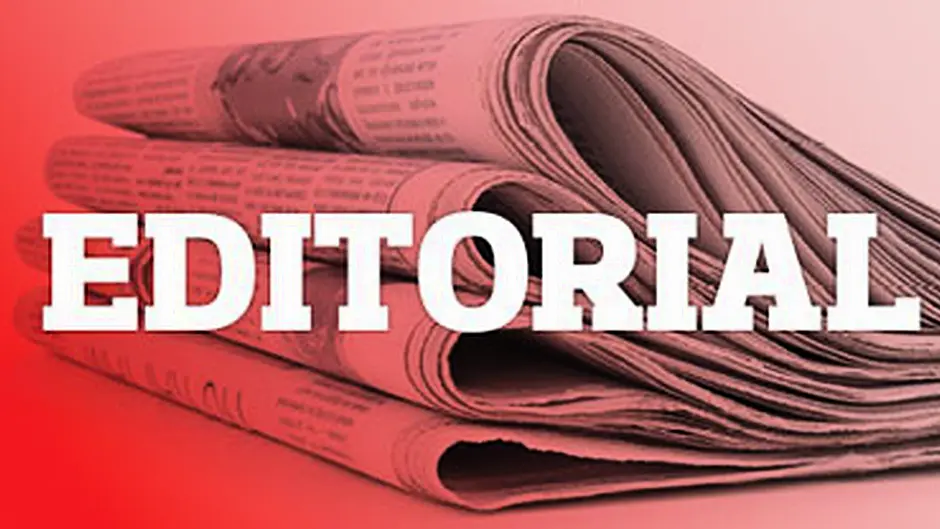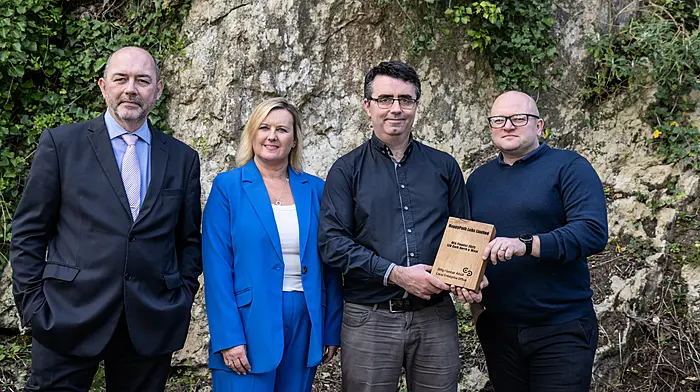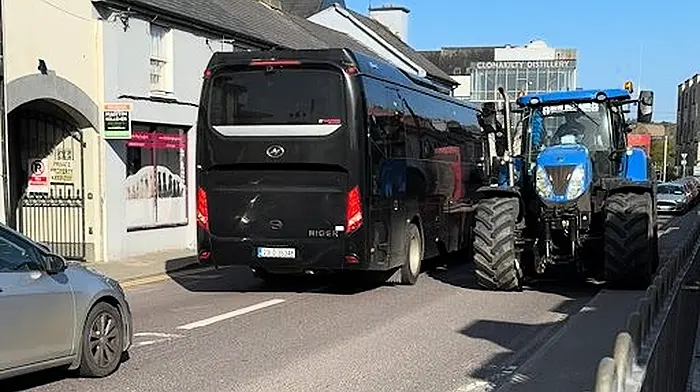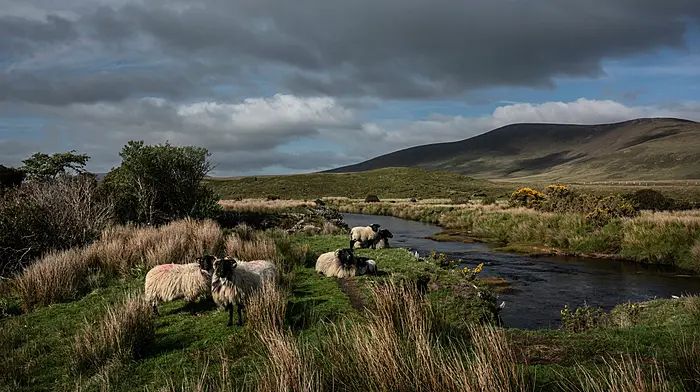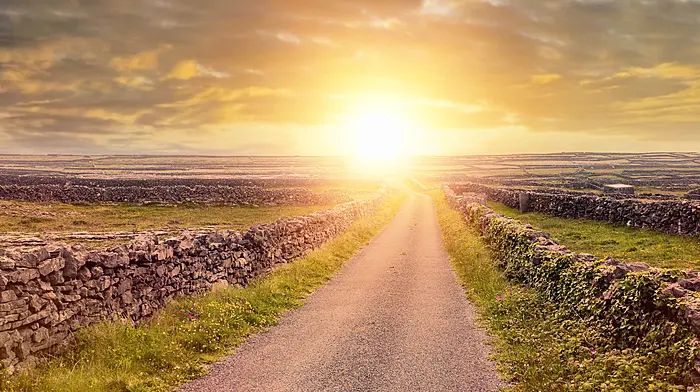WHILE the ‘noughties’ – the first decade of the 21st century – was one of boom to bust, the decade just gone was the polar opposite, but are we really much better off as we enter the 2020s? Some people may be, but the country as a whole certainly isn’t as people are finding it difficult to make ends meet and the relentless pressure of juggling all the elements of unnecessarily-complicated lifestyles have many struggling to keep the show on the road.
When we entered the decade just gone, we thought things could not get much worse after the costly banks bail-out. How wrong we were.
By the end of 2010, the country suffered the ignominy of being forced by the troika of the European Commission, the International Monetary Fund and the European Central Bank to sign the Economic Adjustment Programme for Ireland. Austerity kicked in and the Finance Minister Brian Lenihan charted a course to get the country back on track as private debt, unfairly, became sovereign debt and Irish taxpayers were hung out to dry the EU; sadly, Mr Lenihan died young and did not live to see the financial recovery taking hold.
The Fianna Fáil-Green Party coalition collapsed at the start of 2011 and Taoiseach Brian Cowen handed the poisoned chalice of his party’s leadership to Micheál Martin who led them into an expected rout in the general election, as Fine Gael, under Enda Kenny, became the biggest party but still had to form a coalition with the Labour Party to govern the country.
In Cork South West, we had a total changing of the guard with young guns Jim Daly and Noel Harrington (Fine Gael) and Michael McCarthy (Labour) being elected and with no seat for Fianna Fáil. The latter two lost their seats in 2016 to Fianna Fáil’s Margaret Murphy O’Mahony and independent Michael Collins, while Jim Daly is retiring having reached the rank of Minister of State for Mental Health and Older People.
In October 2011, Michael D Higgins became Uachtarán na hÉireann and since then has distinguished himself in the role – the high point so far having been the commemoration of the centenary of the 1916 Easter rising four years ago.
The early years of Enda Kenny’s first term as Taoiseach saw him being critical of the Vatican in Dáil Éireann over its handling of clerical child abuse exposed in the Cloyne Report. He was active in promoting Ireland on the international stage as a great place to do business as the country shook off its unwanted ‘Erin go broke’ reputation after the troika deal expired at the end of 2013, however, he did miscalculate the extent of which the economic recovery had reached people.
***
ENDA Kenny’s ill-chosen 2016 general election slogan, ‘Let’s keep the recovery going,’ showed how out of touch his government was with people still struggling – especially beyond the Pale –and it backfired badly with Fine Gael losing 26 seats and the Labour Party bearing the brunt of the blame for the years of austerity of the first half of the decade. Even though he had to scramble to form a minority government with the support of arch-rivals Fianna Fáil, Kenny achieved his aim of becoming the first Fine Gael Taoiseach to serve in consecutive Dáil terms.
That pyrrhic victory was to be as good as it got for him as younger contenders for his job waited in the long grass and just a year later, after a hotly-contested leadership battle, Leo Varadkar saw off the challenge of Simon Coveney to become Ireland’s first mixed race and openly gay Taoiseach.
This did not stop the problems the Fine Gael-led government was encountering, losing two Garda Commissioners – Martin Callinan and Noirín O’Sullivan – and two Minister for Justice – Alan Shatter and Frances Fitzgerald – in a sea of controversy sparked by Garda whistle-blower Sgt Maurice McCabe, which showed up the force in a very bad light and it is only slowly recovering from this under the stewardship of the first outsider to be appointed as Garda Commissioner, former PSNI Deputy Chief Constable Drew Harris.
During the past decade we had same-sex marriage approved in a referendum in 2015. The death in childbirth of Savita Halappanavar in 2012 was one of the events which led to the passing of a referendum in May 2018 to allow abortions to be carried out in Ireland. The involvement of so many young people in both referendum campaigns helped carry them, but will they be as willing to exercise their franchise in the next general election, due in 2020?
The CervicalCheck scandal exposed by the bravery of Vicky Phelan, who refused to sign a confidentiality clause in her court settlement, was another of many that tainted the HSE and their agents, adding to the failure to get to grips with overcrowding in emergency departments due to hospital bed shortages and the ever-lengthy waiting lists for public patients to see consultants and get treatment. Successive Ministers for Health have failed to deal effectively with these scandalous situations, which the government should hang its head in shame over.
The same goes for housing, with homelessness figures much higher now than they were at the start of the past decade and a severe shortage of new housing units – social housing in particular – adding to a problem that two Fine Gael-led governments have allowed worsen in spite of the country allegedly being much better off.
***
ON the international front, a number of populist events that few people would have thought possible took place, as they defied all odds. Going into the June 2016 referendum on whether or not Britain should leave the European Union, few would have bet on a leave vote, but Brexit has become the stark reality it now is, with Ireland set to suffer further economic consequences after it officially happens at the end of this month.
Neither would many have given Donald Trump a chance of being elected President of the United States, yet it too happened too and, while the American economy is doing well, his grasp of international relations and diplomacy is tenuous at best. His rejection of the Paris Climate Change Agreement of 2015 was a serious setback for those trying to mitigate global warming.
The lack of political will to meaningfully tackle the need to reduce man-made greenhouse gas emissions was called out during 2019 by the young people of the world, led by Swedish teenager Greta Thunberg, who have been trying to persuade governments that actions speaker louder than words. While, our own government has come up with a climate action plan, it is only the beginning of what will be a costly journey.
However, it was hugely annoying for climate activists to see vested interests trying to frustrate their best efforts at the COP25 UN Climate Action Conference in Madrid last month as we enter what will be a crucial decade in trying to tackle the climate change and biodiversity emergencies we find ourselves in at the moment.

